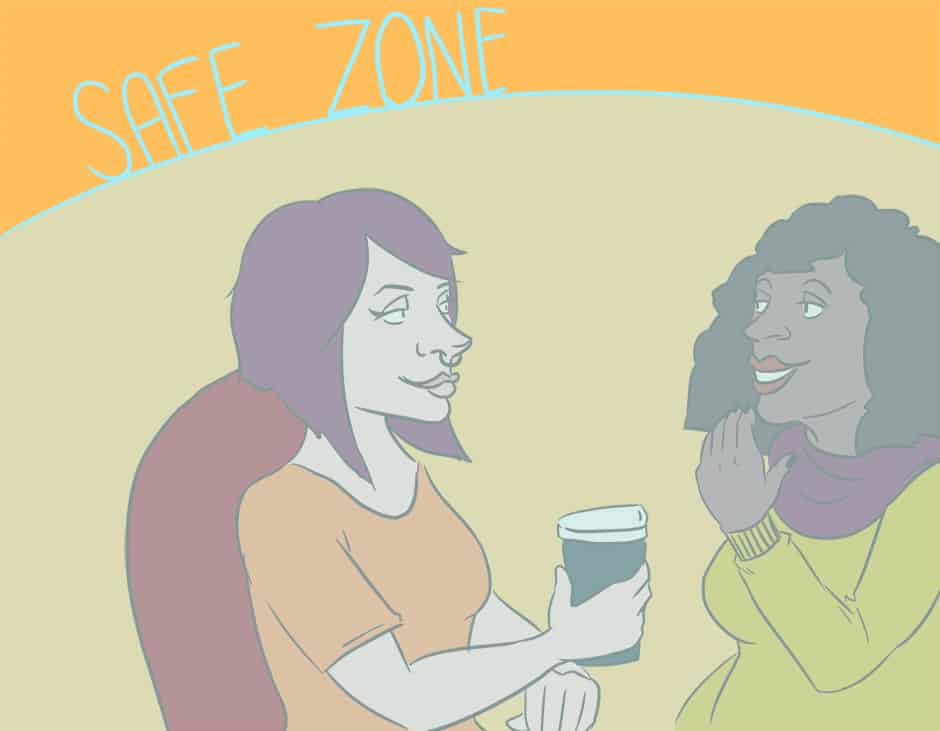Originally a notion developed by the LGBTQ movement, “safe spaces” were imagined as places defined by openness and acceptance for non-heterosexual identities. Recently, the idea of safe spaces has been embraced by many movements in a variety of contexts.
Fostering safe spaces is an essential aspect of social justice. However, we should be careful of expanding their scope to the university as a whole, because of the risk they pose to non-negotiable values, such as free speech and freedom of expression.
What is the essence of a safe space? It is inherently political — it is a space that stands in opposition to a background of violence and fear. Violence is a broad term; it may reasonably connote physical harm or psychological trauma following from a demeaning insult or stereotype. I am more interested in the latter and how it applies to discrimination law.
Constitutional equality guarantees all persons a certain set of domain-specific freedoms. In the Canadian context, these freedoms hold in the legal, political, and economic spheres, but not in most private spheres. This is the approach that Canadian legal philosopher Sophia Moreau takes in her very humane liberal theory of discrimination law.
According to Moreau, the primary interest protected by Section 15 of the Charter might be called “deliberative freedom.” Rather than referring to freedom of conscience, this concept implies the ability of all subjects to deliberate, make plans, and successfully act upon their plans without having to consider normatively extraneous traits, such as race, gender, or sexual identity. To have to consider some traits as a limitation is to have to factor it into one’s considerations: to worry about exclusion, limitation, antipathy, or harassment on the basis of that trait in one’s day-to-day affairs.
A safe space might be considered similarly. In a safe space, subjects are free from the burden of having to consider certain traits as limits; conversation and behaviour alike are unconstrained by fear of a potentially negative response on the basis of one’s identity that might limit, demean, or harass. The benefit of said spaces are clear — they provide refuge in the a sea of demeaning stereotypes and stigmatization. They are places for marginalized groups to articulate their shared experience and to develop group-specific means of coping.
By necessity, such a space is highly constructed. It is never spontaneous, but relies upon some exclusionary norm; some practice, person, class of persons, or set of beliefs is not permitted in some space.
This is not always problematic, as the exclusion of persons or the restriction of conduct are not always immoral. What is clear, however, is that a safe space is never neutral. In fact, such spaces are necessarily counter-cultural, as they are resisting the dominant ideology of society at large.
Some are uncomfortable with the idea of explicit exclusion as such — but who are they to limit people’s freedom of private association along whatever lines are so desired, especially when such associations serve to promote in-group solidarity and the political mobilization of a disadvantaged class?
Liberal societies are defined by their permissiveness of differing conceptions of the good. They do not enforce one particular set of beliefs as to what constitutes a good life on all members of that society. The notion of a safe space, when interpreted as a place where individuals are free from potential psychological injury potentially incurred by the mere expression of their worldview, is not at odds with liberalism provided that the extension of such spaces is limited, or non-totalizing.
Yet it is not the case that a liberal can endorse all spaces in society as safe spaces in this sense. To do so would be to enforce one particular set of beliefs as to what constitutes the good over all other conceptions. If the mere expression of a worldview that puts pressure on a particular group is sufficient to count as psychological trauma to that group, the political arena may have to eternally remain somewhat unsafe if it is to be just.
This also applies to public institutions vital to our democracy, like universities. To limit the free association of persons or the free exchange of ideas, whether these ideas are suspect or not, is to enforce a totalizing conception of the good. This is something that cuts to the quick of our conception of Canadian liberal democracy.
Michael Luoma is a fourth-year philosophy specialist at Trinity College.


